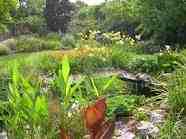The song we will all sing (or hear the next day for those sleepyheads!) is the classic that was spread by the Scots, English, Welsh, Cornish and Irish as they emigrated around the world.
Robert Burns (1759 – 1796) even plagiarised the old song – when he sent a copy of the original song to the Scots Musical Museum, he remarked “The following song, an old song, of the olden times, has never been in print, nor even in manuscript until I took it down from an old man”.
Burns collected folk songs from across Scotland, often revising or adapting them and whether we use the original melody as Burns intended ... or not it is the one that is widely used today.
The phrase “Auld Lang Syne” is also used in similar poems by Robert Ayton (1570 – 1638, Allan Ramsay (1686 – 1757) and James Watson (1711) as well as in older folk songs predating Burns .... and appears to be an ‘equivalent’ of “Once upon a time ....”
“Old long since”, or more idiomatically “long long ago”, “days gone by”, or “old times” – consequently “for auld lang syne”, as it appears in the first line of the chorus, is loosely translated as “for (the sake of) old times”.
Auld Lang Syne: English translation (minimalist version)
Should old acquaintance be forgot,
and never brought to mind ?
Should old acquaintance be forgot,
and old lang syne ?
and never brought to mind ?
Should old acquaintance be forgot,
and old lang syne ?
CHORUS:
For auld lang syne, my dear,
for auld lang syne,
we'll take a cup of kindness yet,
for auld lang syne.
for auld lang syne,
we'll take a cup of kindness yet,
for auld lang syne.
And surely you’ll buy your pint cup !
and surely I’ll buy mine !
And we'll take a cup o’ kindness yet,
for auld lang syne.
and surely I’ll buy mine !
And we'll take a cup o’ kindness yet,
for auld lang syne.
CHORUS
We two have run about the slopes,
and picked the daisies fine ;
But we’ve wandered many a wearyfoot,
since auld lang syne.
and picked the daisies fine ;
But we’ve wandered many a wearyfoot,
since auld lang syne.
CHORUS
We two have paddled in the stream,
from morning sun till dine ;
But seas between us broad have roared
since auld lang syne.
from morning sun till dine ;
But seas between us broad have roared
since auld lang syne.
CHORUS
And there’s a hand my trusty friend !
And give us a hand o’ thine !
And we’ll take a right good-will draught,
for auld lang syne.
And give us a hand o’ thine !
And we’ll take a right good-will draught,
for auld lang syne.
CHORUS
 |
Cover to Banjo Paterson's seminal 1905 collection of bush ballads, entitled The Old Bush Songs |
The term ‘ballad’ probably derives its name from the Medieval French dance songs or “ballares” (from which we also get ballet). The storytelling concepts would have come in from Scandinavian and Germanic traditions as reflected in that great poem: “Beowulf”.
Literary ballads today we know reflect the work of Burns, Wordsworth, Coleridge to name a few ... and were encompassed by the Ballad Operas (eg The Beggar’s Opera 1728)... as well as stories from north America ... “The Ballad of Davy Crocket” ... or the "Bush Ballads" that gained a foothold in the rural Australian outback.
 |
| A statue representing Janus Bifrons in the Vatican Museums |
Tomorrow: New Year’s Day is the one true global public holiday – celebrated by many with fireworks to spark 2012 into life ... and Auld Lang Syne to “ ‘remember our trusty friends’ as we’ll take aright good-will draught .... for auld lang syne”.
Hilary Melton-Butcher
Positive Letters Inspirational Stories













































